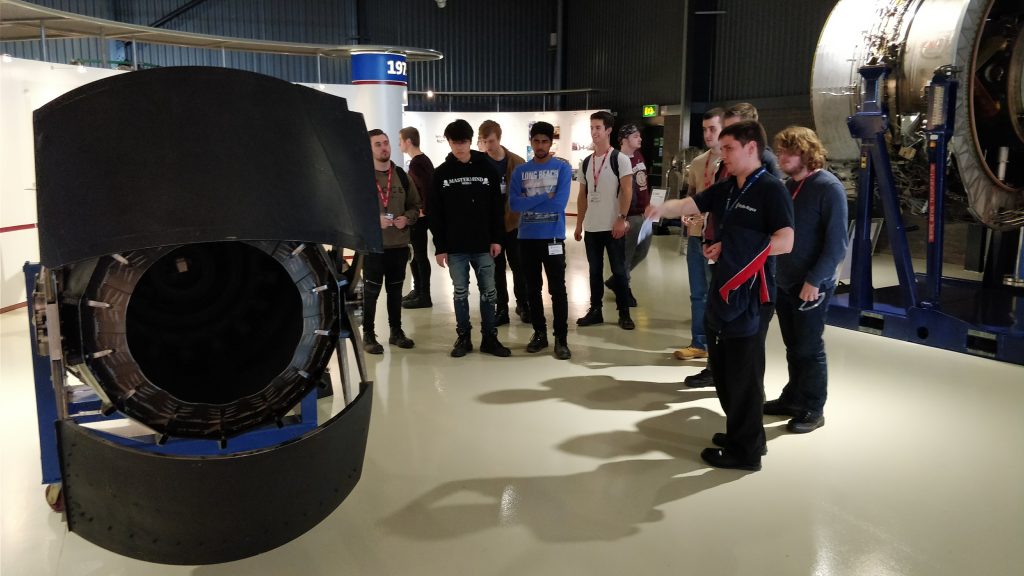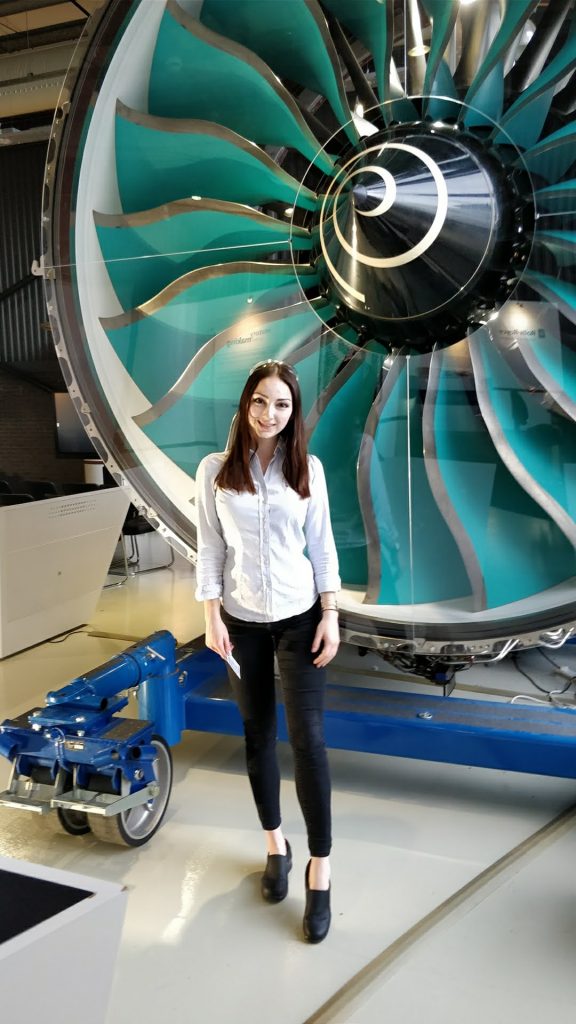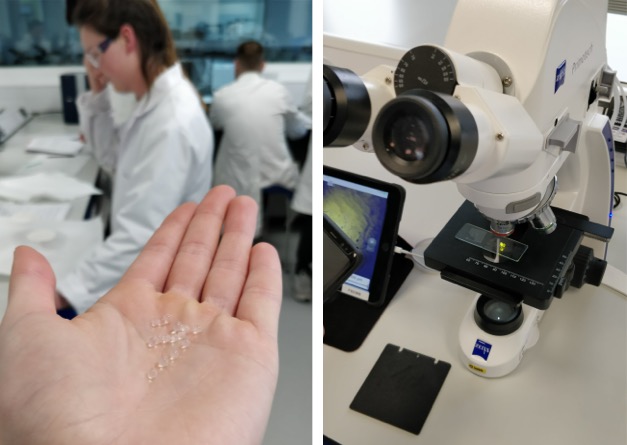Learning engineering through practice
Exciting industrial trips, cool laboratories and fun projects are all highly valuable to engineering education – a little bit about these at Loughborough in this post!
In early March, I was responsible for organising a factory trip for Part A students in the Materials Department, and it went satisfyingly well. Industrial visits are a concept that I find very valuable and keep close to my heart, as site visits have previously helped me develop a specific interest in my course and define my future career path.

The trip consisted of a visit to the Rolls Royce factory in Derby and their Heritage Centre museum, which hosts a detailed exhibition on the history of the aircraft engine maker and an inspiring collection of everything from the Merlin engines to a life-sized Trent 900 (see photo).
We indulged in a private tour around a drum and shaft manufacturing operation lead by the plant director and got detailed insight into the production and materials-specific processes. We were also lucky to have access to a former Loughborough Materials student, who gave us some advice for the future and tips on applying to internships at the company.

The students had fantastic feedback and said that it was very relevant to the course and useful to their studies. In fact, there is extensive literature available on the benefit of industrial visits to the learning process. I also agree that we, as students, can be motivated by stimulating and interesting tasks [1], and we definitely learn better through experience and interaction [2]. Consider it yourself! Could you learn how to ride a bicycle by only watching Youtube tutorials about it on your couch?
Talking about learning new skills, I also recently participated in a highly engaging lab for my Biomaterials for Drug Delivery module, oriented at the Biomaterials Engineering programme in my department. We were tasked with producing hydrogel beads containing a ‘drug’ substance and investigating the release properties. This lab experiment was used as a simulation of how real drugs, such as those in your painkillers, would behave in a similar environment, and how research is performed in this field.
And of course, I finally got to do some work in the freshly-opened STEMLab facility, which is a beautiful modern £17 million project built to host our teaching laboratories. It may sound corny, but this activity genuinely helped me remember diffusion theory better as well as become more interested in the field of biomaterials! Maybe I will consider saving the world as a potential career path…?

A recent publication [3] by the Royal Academy of Engineering suggests various ways of engaging students with industry, ranging from site visits and university societies such as Formula Student, to industry-sponsored competitions or mentorship. At Loughborough, the latter is available through Lboro Connect, a networking and mentoring platform specifically for students and alumni. Societies like the Women Engineering Society also organise events that tackle real-life problems and give students an opportunity to talk to lecturers or similar
I have also been very lucky to have the chance to engage with industrial partners through both coursework, such as a specific design project sponsored by metal-making companies in the area, and more recently in my Industrial Case Studies module, where industrial representatives give lectures on their field of work. It was also a pleasure to recently attend the annual Spring Careers Fair, which featured over 100 exhibitors, including a flashy Tesla (see below)!

I doubt you are by now….but if you’re still looking for Loughborough opportunities to apply your learned engineering skill to practice, you may be interested in:
- pursuing an undergraduate summer research opportunity with your department,
- joining a society like TechSoc, Space Society, Drone Society or many others found at the LSU website,
- or even using Loughborough Enterprise to start your own business!
References:
[1] Pintrich, P.R.. A motivational science perspective on the role of student motivation in learning and teaching contexts. Journal of Educational Psychology. 2003.
[2] Race, P. The lecturer’s toolkit. London, Routledgе. 2003. Via Shawcross, J.K., Ridgman, T.W. Manufacturing excellent engineers: skill development in a Masters programme. Engineering Education. 2015.
[3] Broadbent, O., McCann, E. Effective industrial engagement in engineering education: a good practice guide. Think Up, Royal Academy of Engineering. 2016.
Student Life
Find out what makes 'The Loughborough Experience' by reading our student blogs.